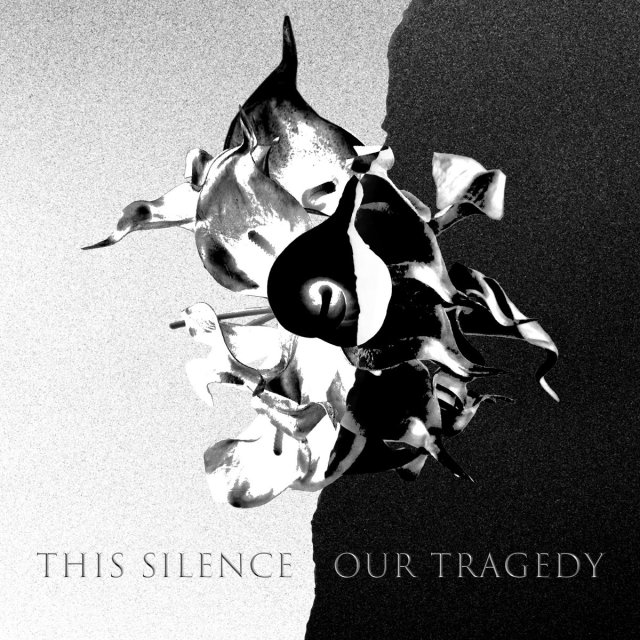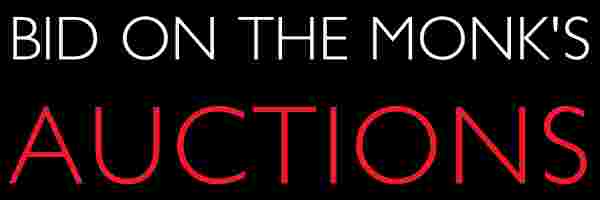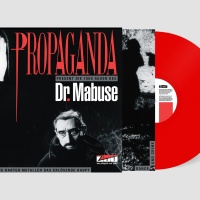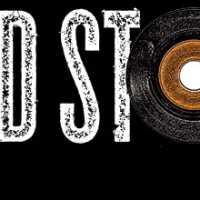 Simple Minds | Empires + Dance – 4
Simple Minds | Empires + Dance – 4
[…continued from past post]
Track one of this album is my go-to Post-Punk song, so yes, it’s one of my most treasured songs ever. “I Travel” is perhaps the most left-field song ever inspired by the seminal “I Feel Love” by Donna Summer. Among others. Not content to merely dabble in Moroderesque sequencer lines, the band also took a page from the books of Bowie and Kraftwerk to create the sound of Europe disintegrating to the sound of a runaway locomotive… or were those marching boots? The rhythms here were as hard and uncompromising as anything Kraftwerk achieved on “Trans Europa Express” with McGee’s drums slamming in syncopation with MacNeil’s synthesizers, but the overall vibe was more frenzied and explosive than the monolithic dread [more on that, later] that Bowie attained on “Station To Station.” This was the “all guns blazing” opener to end all such openers. So much happens in this track it’s almost necessary to suggest that the sequencers in the intro can be said to presage acid house rhythms almost a decade prior.
Derek Forbes mutated the distinctive sequencer line from the Moroder classic into a baseline that was just as repetitive for being played by hand. Burchill’s guitar was tremoloed almost into oblivion to provide the textural riffs that counterpoint the squalling solo in the song’s bridge. The sound here was one of continual shock and excitement by a band with nothing holding them back. The first time I heard this was when I bought my copy of “Empires + Dance” in 1983 and placed the needle on side one with the track in my long, lost AKG studio headphones. It was so immediately bracing that I re-cued the record to hear that amazing intro one more time before letting the side play out.
 Jim Kerr took vocal command as he was finally settled into his role as vocalist here with kaleidoscopic lyrics and stentorian vocals that reflected the band’s recent travels in Europe prior to recording. The lyric “airports playing Brian Eno” was just icing on the cake. It’s hard to imagine the band getting more assured production than John Leckie provided for the third and last time here. The ideas exploding from this record could have hardly been bettered if Brian Eno or Conny Plank had been at the helm instead.
Jim Kerr took vocal command as he was finally settled into his role as vocalist here with kaleidoscopic lyrics and stentorian vocals that reflected the band’s recent travels in Europe prior to recording. The lyric “airports playing Brian Eno” was just icing on the cake. It’s hard to imagine the band getting more assured production than John Leckie provided for the third and last time here. The ideas exploding from this record could have hardly been bettered if Brian Eno or Conny Plank had been at the helm instead.
After that monumental and breathless opener, the energy level of the album dialed down to build a monolithic arc of dread and decay, redolent of statue on the record’s cover. “Today I Died Again” features Forbes on fretless bass predominating the methodically paced number that bristles with the dread echoed in Burchill’s droning guitars that are absolutely static, in spite of the song’s shambling rhythms. Kerr’s phased vocals on the chorus never quite manage to penetrate the membrane between him and the rest of the song, resulting in ghostly echoes that mirror the song’s preoccupation with the wheel of karma.
If that song was methodical and foreboding, then the next one hit a sweet spot between the frenetic “I Travel” and the lurching “Today I Died Again.” “Celebrate” was the closest the album came to getting a bit of swing; that being down to Forbes lively walking bass line. The relentless, claustrophobic, rhythms of McGee were abetted by MacNeil’s syncopated three-note synth hook as he operated fully in rhythm mode. Kerr’s stentorian vocals recalled Bryan Ferry at his most commanding. The song’s rhythmic lockstep was blurred by the song’s end when an asynchronous beat was introduced in the the song to create a rhythmic interference pattern that reflected the elements of tension in the song as in a hall of mirrors.
Then the song that has come to define the album in my ears appeared at the end of side one. “This Fear Of Gods” opened with a simple chime. Then the relentless, looped synth figure began and trilling, insect synths competed in the periphery of the mix with shaker percussion from McGee. Burchill blows a purely textural saxophone here with results not a million miles away from side two of “Heroes.” The groove began with regimented assurance and didn’t falter. The repetition was prodigious. When the first chorus occurred halfway through the 7:00 running time it was shocking. Burchill’s guitar was heavily treated to merge seamlessly with the sharp shards of synths that MacNeil added to the mix to create a colossus of dread like few things I’ve heard.
The low BPM of the track could not be in starker contrast to how the album began, but each have their respective powers. The former was a headlong, amphetamine rush that threatened to careen out of control while adroitly skirting the edge of chaos for maximum thrills and the latter was a slowly building, trance inducing trip of immense and monumental power. This thing [I can’t quite call it a song] exerts an almost voodoo like power over the listener, and wisely, the band let it play out for a long 7:00 running time. An entity this formidable needs sufficient time to accrue its full impact.
Kerr sounds like a man possessed here as he intones the unsettling and abstract lyrics that fully manage to convey the sense that something terrifying is happening and the listener is powerless to stop it. His delivery of the lyrics is just as repetitive as the music and he brilliantly repeats and refracts the lyrics to fit the meter of the music.
“Hear a voice and see no angel
Hear a voice and see no angel
Hero
See no
Hear and see no
Hear a voice and see no angel” – This Fear Of Gods
He achieves an almost shamanistic effect on this album as he is smart enough to curtail the lyrics down the bone if necessary for the song. The willingness of members of Simple Minds to subordinate their egos to create something of this enormous collective power was perhaps their secret weapon that allowed them to reach heights that their peers could not begin to touch. This album proves that beyond a shadow of a doubt as it lets the rhythm section dominate the proceedings as the melodic instruments take an extremely subordinate role of providing textural juxtapositions. As this song fades with its chanted coda of “I’m back on black,” to the muted squalls of Burchill’s sax, this listener is now left somewhat drained as side one comes to its conclusion. Keep in mind that’s after 32 years of listening to this record. It’s power for me has only increased with time …and repetition, of course!
Next: …Empire Strikes Back








![Chris Cross: 1952-2024 [part 2]](https://postpunkmonk.files.wordpress.com/2024/04/ultravox-cross.jpg?w=200&h=200&crop=1)


There is no other album I have come across that speaks to the bleakness of modern Western Civilization better than Empires + Dance. I have always considered E+D more a document of the times than a critique. The highs and lows, the frenzied peaks and the monolithic drones are a world in flux, coming out of the Second World War and searching for comfort, control, abandonment of the past – looking for a future that would allow it to escape that past.
I Travel is one of the boldest opening tracks of any Post Punk album. It chases you through an urban jungle, catches up and grabs you from behind. Then you find yourself running alongside it, reveling in the power and abandon. Kerr’s descriptive lyrics travel along with you, capturing glimpses, but never stopping to ponder anything you’ve taken in.
Celebrate is possibly the song with the most critical view of the world. With it’s focus on the cold war the minimalist pulse, bass, handclaps, synth and guitar effects, with almost no melody to speak of strips back the layers of politics and makes it more personal. The final verse has always stuck with me.
This Fear Of Gods is where Simple Minds takes flight on E+D. Yes it is certainly a martial rhythm, but to my ears it’s engine-like as well. Kerr’s vocals being held back give the song a truly expansive feel. This is a song John Leckie should have at the top of his CV, for he is a master of production for keeping everything that is going on right where it belongs in the mix. It’s amazing that Burchill’s shards of guitars stitch together so seamlessly with MacNeil’s synths, to create the sound of a flock of birds in urgent flight. The restraint of Forbes and McGee are a formidable match for contemporaries Karn and Jansen and their dips and rises mirror the ebb and flow of flight. Even as the song fades though, the foreboding hasn’t yet diminished. This bleak vision is only just reaching half way.
LikeLike
I love McGee’s drumming…wish he could have stuck around at least a few albums longer than he did. Mel Gaynor’s a beast in his own right (Kerr thinks he’s “the best in the world”), but McGee had such a different style that really shaped the early albums.
Anyway, side one is a great follow up to side 2 of RTRC. They guys were on a roll and picking up speed.
LikeLike
zoo – I agree. If it ain’t broken, don’t fix it! The thing was, the band toured like fiends, and when McGee got married he needed out. Understandable, but any other drummer would have thrown the balance off and a different band would have been the result. Without McGee, the Simple Minds history that we treasure might not exist. Just as “Sparkle In The Rain” could not exist without Mel Gaynor. Mel’s great but I have to value McGee more.
LikeLike
I’ve always been of the opinion that McGee was the right drummer, with the right talent to contribute. When Mel Gaynor came along, he too was the right drummer with the right talent that the band’s direction required. I would NEVER compare – maybe contrast – the two.
LikeLike
Echorich – The facts are, McGee was absolutely necessary to the creation of Simple Minds. Not only did his parents have a pub basement for the band to have their rehearsals, he had both the necessary van and the only driver’s license! At least McGee had a solid run at the top for the band. Four/five unimpeachable albums that represented the band growing at an unprecedented rate.
LikeLike
I totally agree that Brian McGee is a required ingredient to the SM sound and evolution during their most frantically creative era. Without him to blend his understanding of Motorik beat with the bass and synth components of Forbes and MacNeil, SM’s sound might never have reached the heights it did.
LikeLike
Fantastic description of I Travel in particular, if you hadn’t already heard it you ‘d really have to now!
My first SM purchase was the Love Song 7″ when it was originally released, I was only vaguely aware of a history prior to that and kind of presumed it must have just been a warm up for the VIrgin years. Eventually I picked up a 12″ of I Travel for something silly like 15 English pence, rock bottom price because the sleeve was water damaged! I was always looking for bargains in those teenage years…
LikeLike
Simon H – Some of are still looking for bargains. My first “I Travel” 12″ was the ’83 Virgin reissue. I still don’t have the first Arista release on 12″ but at least I have the more crucial 2nd release. It’s hard to believe that such a major achievement got so many chances at the charts… and failed each time!
LikeLike
Similar to you Monk this was my first SM purchase followed by RTRC, the I Travel 7inch with the flexi and the Changeling 7″. So glad the tracks from that flexi were added as bonus to RTRC in the 5X5 box. You’ve given me a good reason to listen these in the car on the way to work …can’t wait for New Gold Dream. Cheers Monk…stunning
LikeLike
Nick – Actually, way back in part one [if you can remember back that far] I revealed that the “Sweat In Bullet” 2×7″ was my first SM purchase. If E+D had been my intro to the band… I might have burst into flames!
LikeLike
my bad…re-read and you BOUGHT E&D and RTRC together, not your first. Note to self…’keep up’ !!!!
LikeLike
Nick – Thanks for saying “note to self,” but the preferred wording is “memo to self!” As used by Billy Blazowski in “Night Shift.” At least according to my wife.
LikeLike
I’m English remember…we use’ note’ and you Americans use ‘memo’ or should that be ‘meeemo’ ?? Only having a joke with you, no nastiness intended nor implied
LikeLike
Nick -Thanks for invoking “meemo” which I remember being used ironically in a Young Ones episode that began with a “Dallas” parody.
LikeLike
Oh yes i know the one – Rik Mayall with teeth whiter than white! Sorry…i’m taking this thread off-topic…..
LikeLike